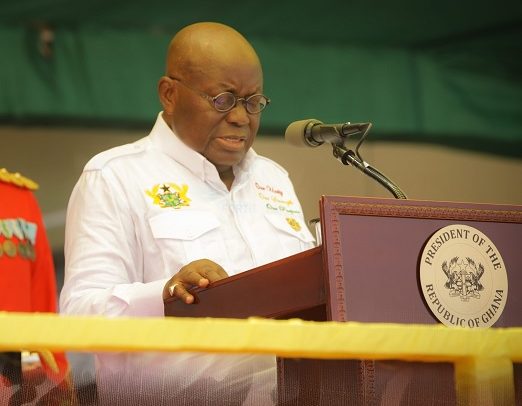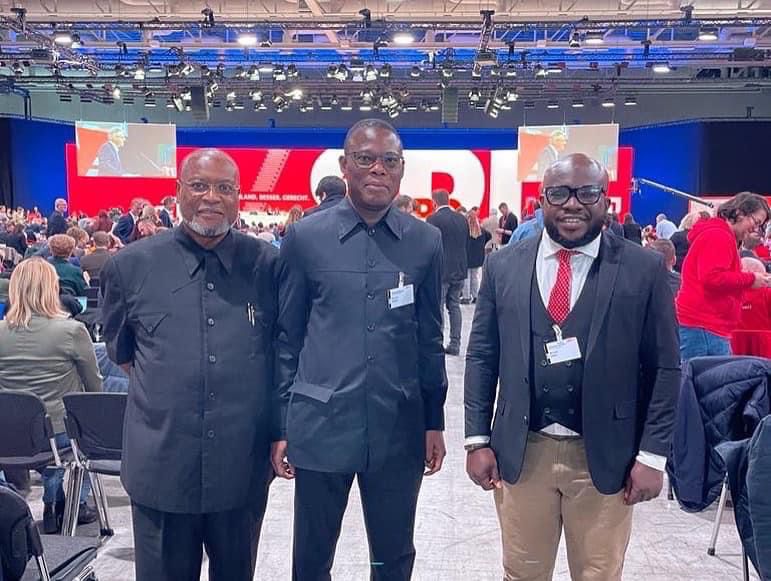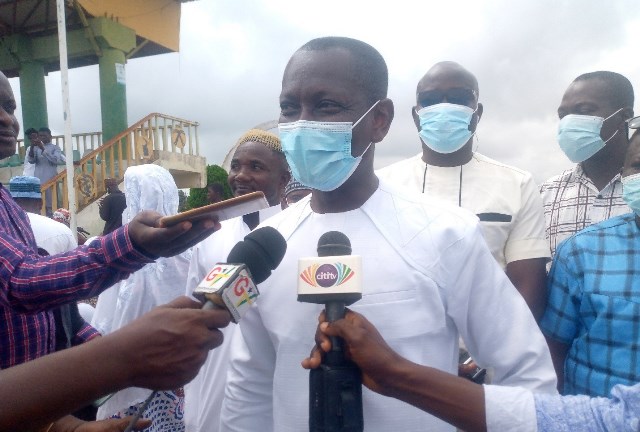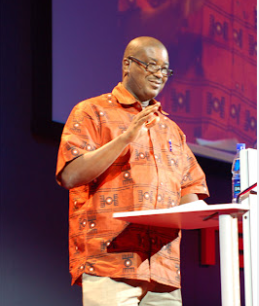
KEYNOTE ADDRESS BY THE HONOURABLE ATTORNEY-GENERAL AND MINISTER FOR JUSTICE OF THE REPUBLIC OF GHANA AT THE FORTY-FIRST (41ST) INTERNATIONAL SYMPOSIUM ON ECONOMIC CRIME
ACKNOWLEDGMENTS
THE CHAIRMAN OF THE SYMPOSIUM, Mr. Saul Froomkin, KC,
THE CO-CHAIRMAN OF THE SYMPOSIUM AND PROFESSOR AT THE CENTRE OF DEVELOPMENT STUDIES, UNIVERSITY OF CAMBRIDGE, Prof. Barry Rider,
MY LORDS,
HIS MAJESTY’S ATTORNEY-GENERAL FOR ENGLAND AND WALES,
HONOURABLE ATTORNEYS-GENERAL FROM VARIOUS COUNTRIES REPRESENTED HERE,
HONOURABLE MEMBERS OF THE HOUSE OF COMMONS
THE RT. HON. LORD MAYOR OF THE CITY OF CAMBRIDGE,
THE RT. HON. LORD MAYOR OF THE CITY OF LONDON,
SENIOR MEMBERS OF THE JUDICIARY gathered here,
HEADS OF LAW ENFORCEMENT INSTITUTIONS AROUND THE WORLD gathered here,
THE DEPUTY ATTORNEY-GENERAL & DEPUTY MINISTER OF JUSTICE of the Republic of Ghana,
I bring you greetings from the President and the people of the Republic of Ghana. It is an honour to be once again invited to deliver a Keynote Address at the Cambridge Symposium on Economic Crime.
This 41st edition is the third occasion I am addressing you since appointed Attorney-General and Minister for Justice of the Republic of Ghana. My sincere appreciation, and felicitations as usual, go to the Chairman and Co-Chairman of this Symposium, Saul Froomkin KC and Prof Barry Rider, for putting together this event which has been a show piece for leading politicians, Attorneys-General, senior judicial officers, legislators, leading academics in law and business and police chiefs in over 100 countries, whose voices and actions are crucial to the establishment of values that protect the global financial system from the effects of economic crime and misconduct.
The City of Cambridge has been most welcoming of us travelling from around the globe for this symposium. We are grateful to the Lord Mayor of Cambridge and the Hon. Member of Parliament for Cambridge, for creating and sustaining an atmosphere of warm hospitality for us all each year.
When I consider the theme for this year’s programme – Suspect Assets – the importance of this forum as a solid platform for strengthening global co-operation among top actors in the campaign against economic crime in countries rich and poor, developed and underdeveloped, investor and recipient of foreign direct investment, comes to the fore.
The motivation for financial and economic crime, often, is the acquisition of illicit wealth and the securing of undue advantage. Thus, effectively tracing assets of suspects and recovering the proceeds of crime nips the motive for such crimes in the bud. Asset tracing is therefore the end game, in my view, in dealing with economic and financial crime. Apart from being simply unconscionable for perpetrators of economic crime to conceal or keep the fruits of their crimes, for the relatively less developed world such as Ghana, the phenomenon breeds mistrust in the system and denies the nation much needed revenue for the execution of lofty development projects. Thus, the quest to recover the assets of criminals obtained from criminal enterprise places law enforcement agencies squarely in the position to contribute to the national purse since a success in that regard makes them a major generator of revenue.
Legislative reform by Ghana to trace and recover assets of criminals and boost transparency
Bearing in mind the motives and modus operandi of the perpetrators of financial crime, far-reaching institutional reform in the form of the building of a sound legal framework, has been deliberately undertaken by the Republic of Ghana to trace the assets of criminals, and, ensure that wrongdoers do not profit from the crimes they commit. The Economic and Organised Crimes Office Act, 2011 (Act 804) – the EOCO Act for short) – was passed in 2011 to, as disclosed in the long title of the law, establish the Economic and Organised Crimes Office (EOCO) as an agency to prevent and detect organised crime as well as to facilitate the confiscation of the proceeds of crime. Three mechanisms stipulated in sections 24, 25 and 29 of the EOCO Act position Ghana’s Economic and Organised Crimes Office as a key institution for the recovery of the proceeds of crime in Ghana. These are the search and seizure powers of EOCO, the power to track properties as well as the mandate to investigate tax fraud and prosecute same on the authority of the Attorney-General. The property tracking mandate of EOCO, undoubtedly useful for the identification and discovery of illicit property, requires cooperation with other institutions of state and other foreign or international agencies.
Another office, the Office of Special Prosecutor (OSP) was also established in 2017 pursuant to law – the Office of the Special Prosecutor Act, 2017 (Act 959) – the OSP Act. Five mechanisms stipulated in the OSP Act fully equip the OSP in the performance of a core function to recover the proceeds of crime. These are the search and seizure powers of the Office, the power to confiscate property pursuant to a court order, the power to apply to the court to compel the payment of a pecuniary penalty in respect of properties that cannot be the subject of an order for confiscation, the power to apply to the Court to lift the veil to unravel the identities of persons and entities holding illicitly acquired property on behalf of others and the power to trace properties.
Another legislation which has many innovative provisions assisting in the tracing of assets and ultimately, the elimination of economic crime is the new Companies Act, 2019 (Act 992) of Ghana. By virtue of a variety of measures introduced by Ghana’s Companies Act to ensure the prompt verification of information provided by companies to the Registrar of Companies, provisions directing access to information contained in the register and the introduction of the declaration of beneficial owners, the Office of the Registrar of Companies has become a reliable partner of the government in its effort to root out corruption. The duty to provide particulars of beneficial owners and the verification processes provide a strong guard against money laundering and corruption generally, and ultimately, boosts investor confidence in the Ghanaian economy. The phenomenon of the creation of shell companies and opaque financial systems, that provide an opportunity for the laundering and concealment of illicit wealth, is being drastically reduced by the enactment of the Companies Act in 2019.
Transparency, integrity and collaboration of various institutions required to trace assets
Ladies and gentlemen, we must tackle financial crimes from the base. An effective way of depriving criminals of the fruits of their wrongdoing is by dealing with the sources of funding of their subversive enterprises so as to disrupt and intercept the proceeds of their misconduct. When those who have been entrusted with authority to ensure that right procedures are followed derelict on same, the trust and confidence of the people in financial systems are abused. Banks must be held accountable. Confidentiality rules and protection of the identities of holders of accounts, especially in some offshore jurisdictions, often become a facade and a conduit for the concealment of the proceeds of corruption and other economic crimes.
Tracing the assets of accused persons, especially convicts of economic crime, is a sophisticated enterprise. It requires the willing participation of a network of gatekeepers such as forensic accountants, bankers, lawyers, real estate agents, data analysts, information technology experts and luxury service providers who act together and are bound up by strong rules of ethics and accountability. Geolocation tools will have to be deployed to identify and monitor the physical location of assets. A transparent and accountable financial environment rooted in structures and systems of integrity is fundamental. As former US Senator, Alan K. Simpson stated, “If you have integrity, nothing else matters. If you do not have integrity, nothing else matters”.
I deem it apt to recall a point I made at this event last year that, transparency is the bedrock of integrity and, I would add, the key to unlocking the sanctuary in which assets of criminals are preserved. Secrecy, privacy and opaque financial environments provide a perfect breeding environment for the concealment of assets obtained from criminal activity. The relevance of transparency and integrity thus cannot be ruled out in the endeavour to trace and recover the proceeds of financial crimes.
An atmosphere of darkness facilitates the commission of economic crime and the concealment of assets obtained thereby. It is for this reason that the recent passage by Ghana of laws like the the Right to Information Act, Corporate Restructuring and Insolvency Act, 2020 (Act 1015), the Protection of Witnesses Act, and the Whistleblower (Amendment) Act, 2023 (Act 1103) which introduce a reward system for whistleblowers have a profound effect on fostering a culture of transparency, accountability in public affairs and banishing the cloud of darkness within criminals hide their ill-gotten wealth and properties. We must promote transparency and integrity as tools for tracing the assets of perpetrators of economic crime and ensuring that economic crime does not pay.
Whilst exploring the efficiency of criminal law and procedure as vehicles for asset tracing, we should not forget the potency of civil law as a utility to terrace assets and recover the proceeds of crime. Many remedies and vital aspects of civil procedure like discoveries and interrogatories have the real capacity to aid in the tracing of assets obtained through the commission of crime and which are being sought to be laundered in society.
Ensuring that plea bargaining agreements and deferred prosecution agreements are not a shield from accountability
Ladies and gentlemen, care must be taken to ensure that the pursuit of assets of criminals does not become a vehicle for concealment of crime and shielding criminals from prosecution. The conclusion of deferred prosecution agreements (DPAs) in certain jurisdictions and plea bargaining agreements should not be used as a conduit by prosecuting authorities and accused persons for the avoidance of liability or acknowledgment of wrongdoing. Ghana recently, in 2022, introduced plea bargaining into its criminal jurisprudence. We have been confronted with situations where some criminals have resorted to plea bargaining arrangements with the State in an opaque and vague manner bordering on the avoidance of accountability. Where prosecutors are motivated by the sole objective of recovering supposed proceeds of crime in a situation where the accused persons plainly refuse to admit responsibility for the commission of those crimes, an unwanted paradox inimical to the rationale for the existence of criminal laws occurs. The prosecutors will face a real risk of sacrificing their reputation and creating a false impression of having compromised their professional integrity and duty to prove the commission of an offence on the altar of making money for the State, or providing a shield from prosecution to accused persons. A delicate balance therefore ought to be struck.
In my respectful view, therefore, plea bargaining should as much as possible be entered into on the basis of a clear acknowledgment of responsibility for the commission of crime, especially financial and economic crimes which directly affect the use of the national purse. It is only when the commission of an economic crime may be impossible to prove or the necessity for a trial of same is outweighed by more compelling considerations that a plea agreement or a DPA, which is not founded on an admission of liability, may be entered into.
Corporate accountability and the environment
I will briefly touch on a topic which does not occupy prominence in a discussion of financial crime, that is, corporate accountability and the environment. We need to see corporate accountability and the protection of the environment and human rights as core principles in the creation of a clean, fair and secure business world. Businesses exist to do business and engage in economic transactions. The extent of their success depends on the society, population and “culture” in which they operate. The profit-making ends of business imply that human rights and nature are casualties of the system. On the African continent, for many years, business has been linked to gross violations of human rights – from detestable working conditions in factories to the involvement of giant multinational oil companies in the destruction of the environment and the perpetration of violence in oil-rich parts of the continent. We should therefore bear in mind the effect of economic malpractices on human rights internationally and on our efforts to combat environmental damage.
Regional integration, international cooperation in dealing with financial crimes and tracing assets of criminals
Whilst tracing of assets is largely international and multi-jurisdictional, we must bear in mind the peculiarities of asset tracing and fighting economic crime generally within the context of specific continents and regions. Regional integration presents further complexities for the effort to curb illicit transfer of funds and concealment of assets. In Africa, the launch of the Africa Continental Free Trade Area (AfCTA), whilst presenting Africa with its greatest opportunity to show to the world the strength of its potential and the entrepreneurial spirit of the people, has unleashed a new set of issues of concern to law enforcement authorities. These take the form of migratory problems, how to deal with the phenomenon of corruption within the context of the African Continental Free Trade Area, money laundering and environmental challenges.
The need to ramp up international cooperation in confronting financial and economic crime cannot be overstated. Many African countries are signatories to international conventions such as the United Nations Convention Against Corruption (UNCAC) and the African Union Convention on Preventing and Combating Corruption. These agreements must be deployed to facilitate cross-border cooperation in assets recovery.
Our survival as a global community depends on the efficiency of cooperation among us. The world can develop a proper response to the dangers posed by economic crime only through a coordinated effort based on mutual cooperation between criminal justice partners and the private sector globally. As I have said before, criminals exploit differences between countries to further their objectives, enrich their organisations, expand their network, and avoid detection or apprehension. They establish influence in government, politics and commerce through corrupt and illegitimate means. I therefore consider this summit as key to reinforcing global co-operation, between the countries that have had assets stolen and the countries where those assets are hidden. Law enforcement officials on both sides must drive forward to ensure a return of illicit funds to countries from which they originate. There must be free international data sharing to combat cross-border economic crime. It is only by so doing that we can effectively protect the wellbeing of our respective national economies, institutions or enterprises.
Mr Chairman, indeed, it has been a real pleasure coming back here and addressing you today. Together we shall overcome!
God bless us all!!!
GODFRED YEBOAH DAME
ATTORNEY-GENERAL AND
MINISTER FOR JUSTICE
REPUBLIC OF GHANA
02/09/2024
The post Full Text: Keynote address by Attorney-General at 41st Cambridge Economic Crime Conference first appeared on 3News.
Read Full Story














Facebook
Twitter
Pinterest
Instagram
Google+
YouTube
LinkedIn
RSS